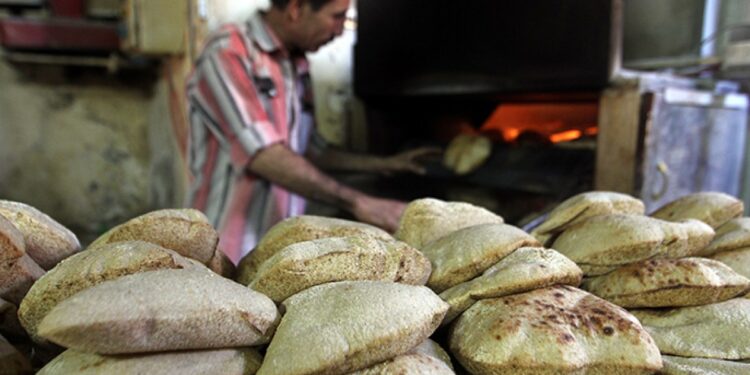The Egyptians historically linked bread with their livelihood, so they called it “bread.” They relied on it mainly for food. Dipping bread in dishes before eating it became an established food habit among Egyptian society, regardless of its cultures.
However, the government is days away from raising the price of a loaf of subsidized bread, which increases the food bill for Egyptian families suffering from the repercussions of the devaluation of the pound in an economy that relies for the majority of its needs on imported goods, especially food commodities.
Egyptian Prime Minister Mostafa Madbouly said, in a press conference yesterday, that Egypt (the largest wheat importer in the world) will raise the price of a loaf of subsidized bread from 5 piasters to 20 piasters, starting next June. Below are answers to several questions that concern Egyptians:
How much bread do Egyptians consume annually?
According to what Egyptian Prime Minister Mostafa Madbouly said in a press conference yesterday, subsidized bakeries produce 100 billion loaves of loaves on average annually (unsubsidized).
The Food and Agriculture Organization (FAO) stated that Egypt consumes 180 kilograms per capita annually, according to what was reported by the Egyptian newspaper Al-Ahram.
How much is the bread subsidy bill for the Egyptian government?
Madbouly said that the cost of a loaf of bread to the state is about 125 piasters, and it is sold (before the new increase) for 5 piasters, and therefore the state bears 120 piasters for each loaf, which means that the state bears annually 120 billion pounds ($2.54 billion).
He added that for this reason it was necessary to take a decision to move the price of bread slightly higher to reduce subsidies relatively.
In the same context, the Egyptian Prime Minister pointed out that the state is still subsidizing each loaf of bread (after implementing the new decision) with 105 piasters, which means that the state will bear 105 billion pounds ($2.22 billion) annually.
He pointed out that all the government is doing in this regard is to slightly rationalize the amount of support placed on the state’s general treasury to ensure the sustainability of service and support provision.
How much wheat does Egypt consume annually, how much does it import, and what is the volume of local wheat production?
Egypt’s wheat production increased by 8% during 2023 on an annual basis to 10 million tons in 2023.
Egypt imported about 10.88 million tons of wheat last year, an increase of 14.7% compared to about 9.48 million tons in the previous year 2022, according to Reuters.
Does the IMF have a hand in reducing bread subsidies?
The International Monetary Fund calls for rationalizing support and delivering it to those who deserve it, and prefers cash support over in-kind support, but it did not indicate that it asked the Egyptian government to reduce support for bread.
The Egyptian Prime Minister said yesterday that monetary support would constitute a more sustainable solution.
Madbouly said: “We present to the national and community dialogue the idea of switching to cash support, because all the economic experts I spoke to, met, and heard from confirm that to ensure the sustainability of the support system and its access to those who deserve it, there is no way to do that except by switching from in-kind support to cash support.”
IMF official Ivana Vladkova said last April that the next review of the Fund’s loan program for Egypt is scheduled to be completed by the end of next June, which is when the Egyptian authorities will be able to withdraw another $820 million, after the agreement in March. Last March, the size of the loan program was increased from $3 billion to $8 billion.
What comes next for bread in the Egyptian support system?
In statements last week, the Egyptian Prime Minister touched on the cost of energy prices, pointing out that diesel prices will remain subsidized, but the prices of other petroleum products must balance by the end of 2025, in reference to moving them.
The Prime Minister confirmed that Egypt is developing scenarios to stop reducing electricity loads with the end of daylight saving time in November or next December at the latest.
Egypt’s consumption bill for petroleum products amounted to 55 billion dollars during the past year, of which 33 billion dollars came from Egyptian products and 22 billion dollars from the foreign partner and what is imported from abroad.



